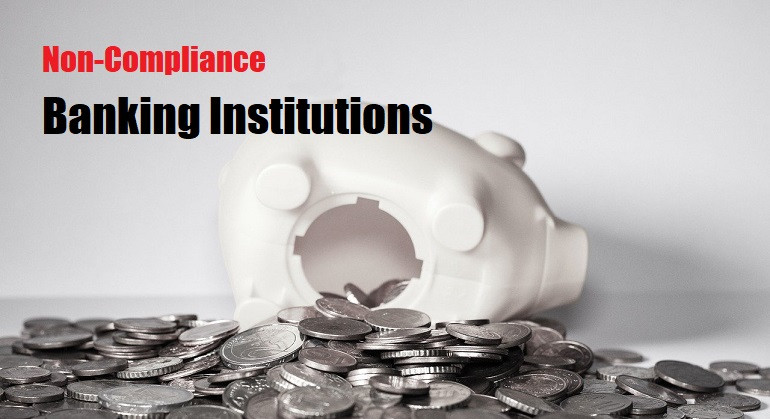

Non-Compliance in Banking Institutions
Compliance is a factor that every company or business has to follow as per the given guidelines and law under the same. The fact that makes a business successful and leads it to a strategy of growth is being compliant in every sense. The banking sector has been under the energy of compliance and it has been witnessed clearly stating the turn of events in the same sector.
The banking sector of India is regulated by the Reserve Bank of India (RBI), under the terms of the Banking Regulation Act, 1949.
As per the RBI, few of the things to be sorted and in line to be compliant are violating the guidelines relating to the KYC, selling complex derivatives product, anti-money laundering, etc. These regulations are a few of the aspects that should be well-known by the banks in order to be a complaint.
Effects of Non-Compliance
As per the scrutiny exercised by the RBI, it has been made quite clear of how much the banks are set on being compliant. After the huge drawback of a scam beheld in the banking sector by Nirav Modi, the rules and laws have been tight and so is the testing of being compliant. One of the measures was to issue confidential directives on the usage of SWIFT by also being liable to connect with the SWIFT messaging system by April 30, 2018. The RBI thus carried out the audits at banks due to the lacunae in the compliance sector. The banks are now under scrutiny from every aspect. A great criticism has been faced by the government or its inability to fall under the regulatory factor. These gaps have to lead to fines and huge fines at that by the RBI.
After being regular with the crucial follow-up procedure, the RBI has imposed quite some hefty fines and penalties signifying its intolerance towards the violation.
The RBI slapped a massive fine of Rs 58.9 crore on ICICI Bank Ltd, which stands almost on the second position in the country for the inability to follow the maturity guidelines for securities portfolio. Some private banks have also fallen under the government's measures to keep compliance a must factor. IDFC Bank, Yes Bank, and IndusInd Bank are few of those banks that have faced strict penalties to stay in the compliance lane. Seven public sector banks have been imposed with fines by the Reserve Bank of India for a combined total of Rs 11 crore for noncompliance of six different adherence norms to be followed while initiating with and watching over new accounts and therefore listing funds on balance sheet.
These seven banks are- Indian Overseas Bank, Union Bank of India (with the imposition of a monetary penalty of Rs 1. 5 crores each), Bank of Maharashtra and Allahabad Bank with Rs 2 crore each, Rs 1 crore fine on Oriental Bank of Commerce by the apex regulators, Bank of Baroda, and Bank of India. Not just this, the RBI is also taking notices to the doors of the banks to make them know the penalty is not far from home if the situation of non-compliance persists any longer. The following non-compliances can get banks under the pit of fines and penalties as per the central bank includes:
- Code of Conduct for Opening and Operating Current Accounts
- Discounting/Rediscounting of Bills by Banks
- Deposits on Balance Sheet Date
- Opening of Current Accounts by Banks - Need for Discipline
- End-Use of Funds – Monitoring
- Reserve Bank of India (Frauds classification and reporting by commercial banks and select FIs) directions 2016
- Deposits on Balance Sheet Date
The RBI made a clear declaration through a notice issued separately for a Rs 1 crore fine on the Corporation Bank as for being non-compliant for cybersecurity-related purposes.
As being one of the major sectors of a country, being and checking for compliance is a mandatory part, especially after the meltdown of the banking sector, has already been an issue in the past which pushes it automatically to skip such issues or even risks.



